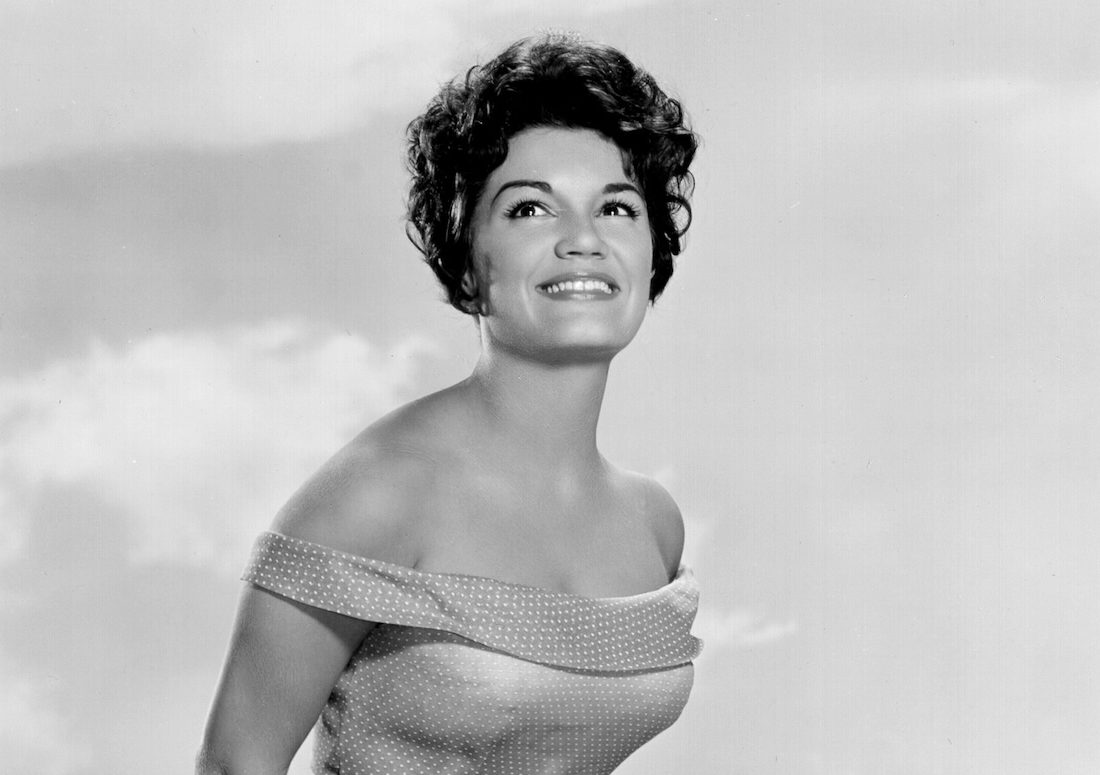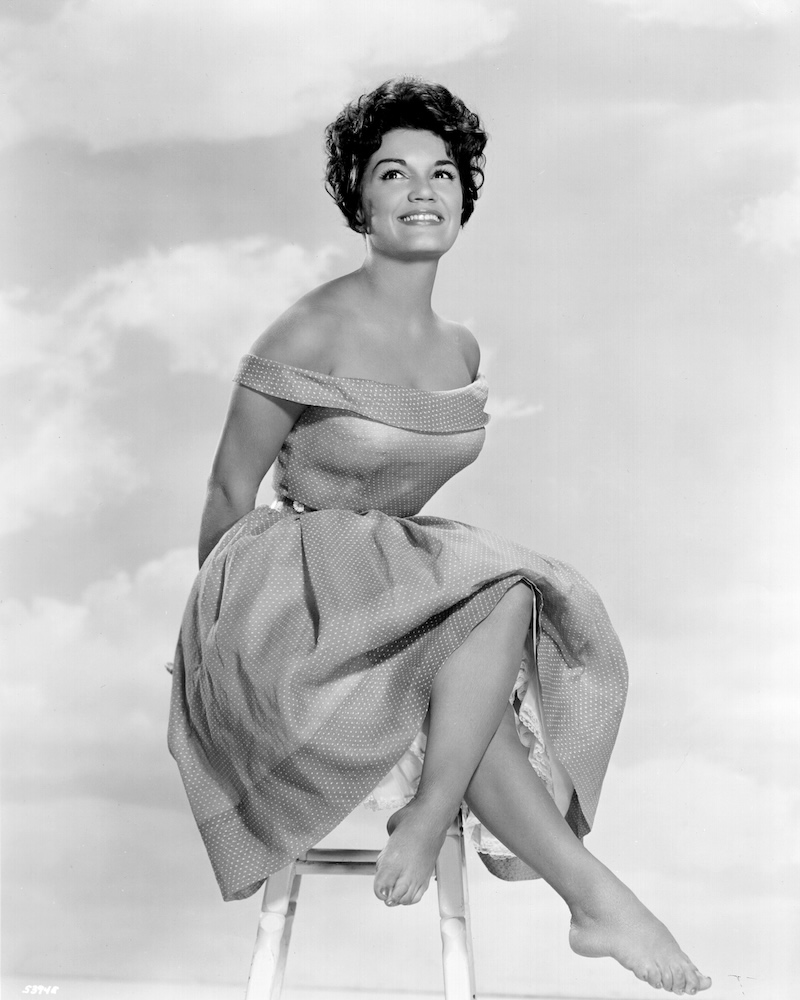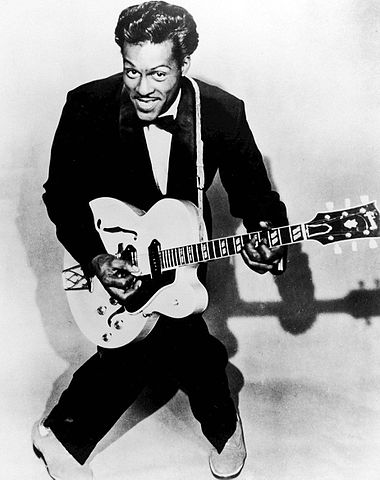Stupid Cupid and Lipstick On Your Collar singer, Connie Francis, dies aged 87
By Dan Biggane | July 19, 2025

Connie Francis, one of the most popular and successful female artists of the mid 1950s, died at the age of 87 on 16 July.
Her death was confirmed by her friend and president of her Concetta Records, Ron Roberts. “It is with a heavy heart and extreme sadness that I inform you of the passing of my dear friend Connie Francis,” Roberts wrote on social media in a statement that was reposted on Francis’ own Facebook page. “I know that Connie would approve that her fans are among the first to learn of this sad news.”
The singer had recently withdrawn from a special Independence Day show alongside radio personality Cousin Brucie after she was hospitalised for “extreme pain”. On a 2 July Facebook post she said: “As many of you may now have learned, I am back in hospital where I have been undergoing tests and checks to determine the cause(s) of the extreme pain I have been experiencing. My thanks for your many get well soon messages. I will endeavour to keep you updated.”
In a Fourth Of July message she wrote: “I am feeling much better after a good night,” but sadly the star passed away 12 days later.
Remarkable Versatility
Though not strictly a rock’n’roll artist, she stood out as one of the defining female vocalists of the 50s and 60s. Her remarkable versatility allowed her to deliver a good rock song with ease, and she has remained an iconic figure for music fans – recently experiencing a resurgence when Pretty Little Baby went viral on TikTok. Originally a B-side to her 1962 single, I’m Gonna Be Warm This Winter, the track has racked up more than 30 million new streams on Spotify as a result.
In the UK, Connie scored 10 Top 10 singles including the No.1s Who’s Sorry Now and Stupid Cupid. Other landmark tracks include I’m Sorry I Made You Cry (No.11), My Happiness (No.4), Lipstick On Your Collar (No.3), Among My Souvenirs (No.11), Mama (No.2), Everybody’s Somebody’s Fool (No.5), My Heart Has A Mind Of Its Own (No.3) and Where The Boys Are (No.5).
Gracie Lawrence, who portrays the singer in the Bobby Darin biographical musical Just In Time on Broadway and who had received a signed photograph from Francis as an opening-night gift, paid tribute on Instagram, saying: “RIP Connie Francis. Thank you for your voice and your resilience, which, as you hoped, will absolutely be your legacy.”
Pretty Little Baby
Born Concetta Franconero in Newark, New Jersey, in 1938 to Italian-American parents, she spent her early childhood in Brooklyn before returning to New Jersey. Raised in a diverse Italian-Jewish neighbourhood, she became fluent in Yiddish, along with English and Italian.
Encouraged by her parents from the age of four, she began singing and playing the accordion, regularly performing at local talent contests. By 15, she was appearing on NBC’s Startime Kids television show. She also performed on the Arthur Godfrey’s Talent Scouts, where Godfrey himself recommended she adopt the stage name Connie Francis – considered easier to pronounce.
After signing with MGM Records, Connie made her US chart debut with Whole Lotta Woman, a duet with Marvin Rainwater. However, the single saw only modest success, peaking at No.93 on Billboard. As a result, MGM informed her they would not renew her contract after her final recording session in October 1957.
Disillusioned, she reluctantly approached that last session to record the old vaudeville favourite Who’s Sorry Now. Initially, the track received little attention, but on New Year’s Day 1958, Dick Clark featured it on his American Bandstand, propelling the song up the charts to No.4 on Billboard. In the UK, Who’s Sorry Now entered the charts at No.22 and climbed to No.1 where it remained for six weeks.
A Big Hit In The UK
Follow-up single, I’m Sorry I Made You Cry, peaked at No.11 in August 1958, but the singer only needed to wait two months until she was back at the top of the chart. After meeting two young songwriters working out of the famed Brill Building – Howard Greenfield and Neil Sedaka – she asked them to pen a perkier track that better suited her youthful energy. They played her a song they had written for The Shepherd Sisters, titled Stupid Cupid. Paired as a double A-side with Carolina Moon, the joyous Stupid Cupid bopped to the top where it remained for six consecutive weeks.
Generally more successful in the UK, the up-tempo rock’n’roller Lipstick On Your Collar gifted Connie her first non-ballad US Top 10 hit, and a UK No.3. Intended as a B-side to the heartbreak ballad Frankie, it was soon promoted and proved to be one of the biggest tracks of Connie’s career. The song captured our imagination again in 1993 when it served as the title and theme song for Dennis Potter’s TV drama starring a fresh-faced Ewan McGregor.
Between late 1959 and the autumn of 1961, Connie firmly established herself in the upper echelon of both the US and UK charts with a run of successful singles. Among them, Where The Boys Are – written by Greenfield and Sedaka as the title track for the 1960 film in which Connie starred – became another defining hit, peaking at No.5 and earning its place as one of her signature songs.

An Iconic Singer
She would pay two more visits to the UK Top 10 with Together (October 1961) and Vacation (September 1962), before retreating from the spotlight.
Though her later life was marked by personal tragedy, misfortune, and illness, Connie made a return to the stage and studio in the 1980s and 90s. She performed in Las Vegas in 2004 and 2010 and even continued to share her music with audiences as late as 2014. She released an autobiography, Among My Souvenirs, in 2017 and officially retired in 2018.
Vintage Rock would like to express its condolences to Connie Francis’ family, friends and fans. She will be missed but her music lives on.
Subscribe to Vintage Rock here





